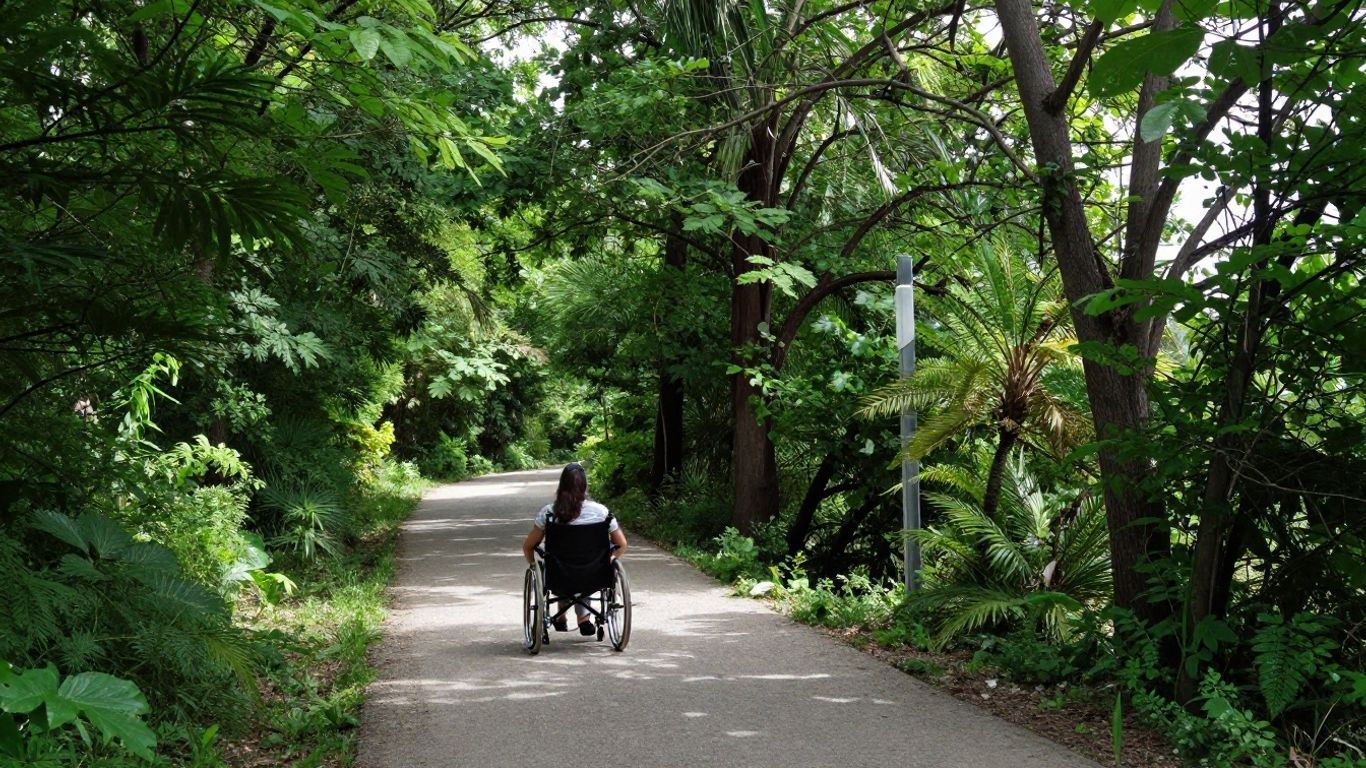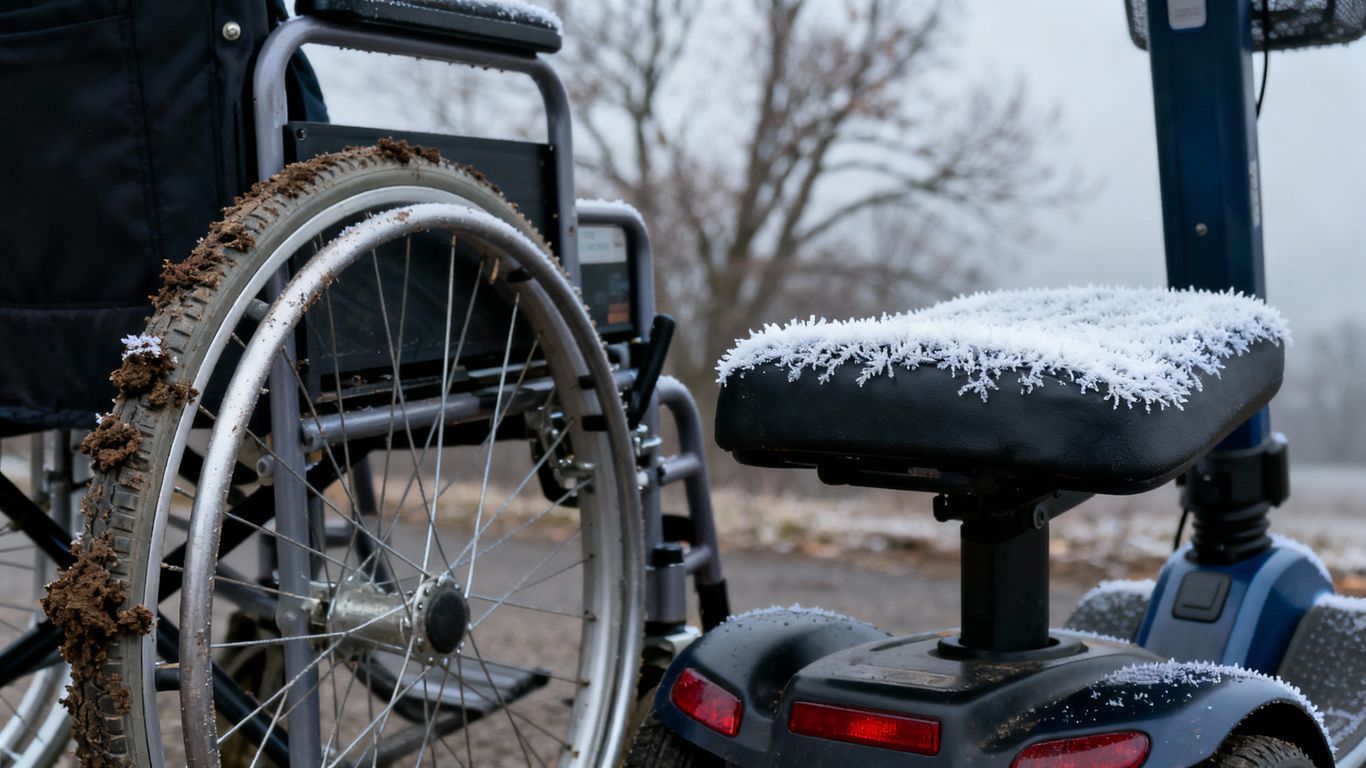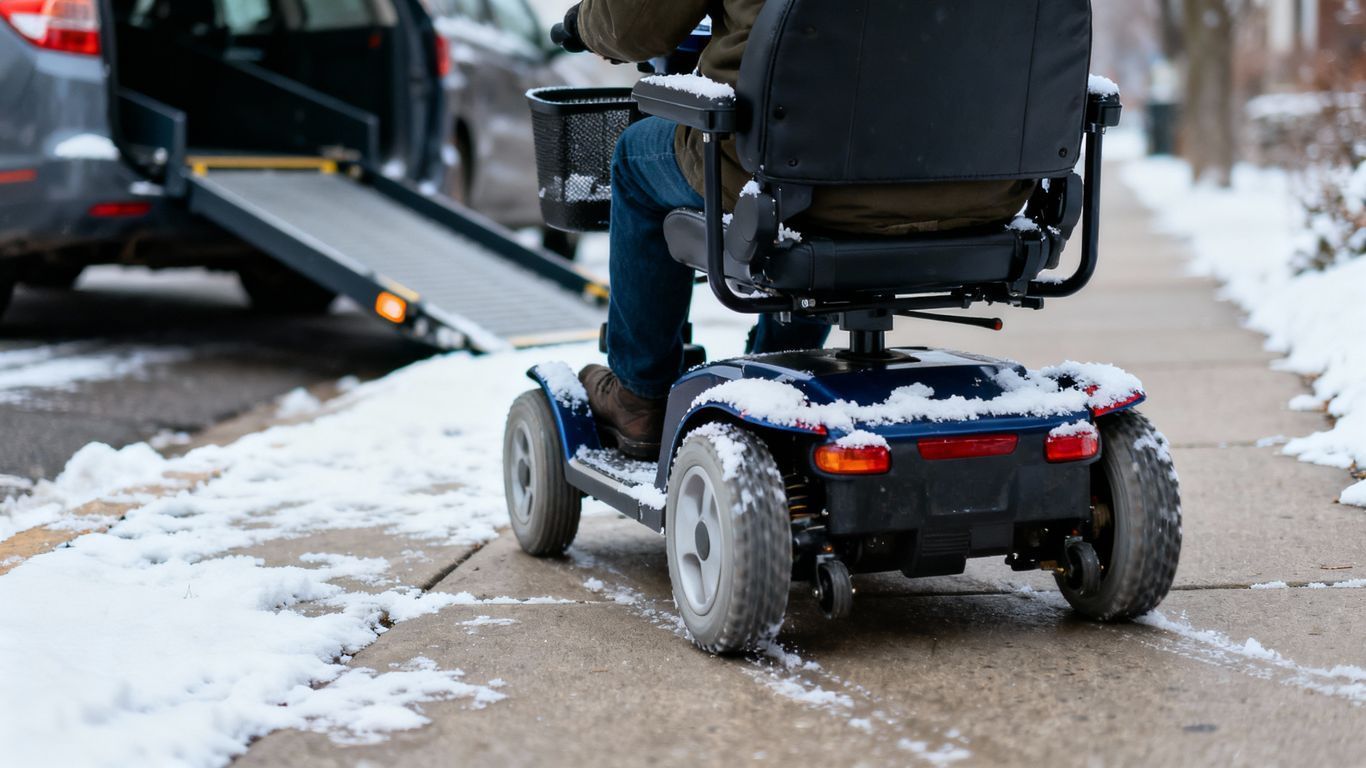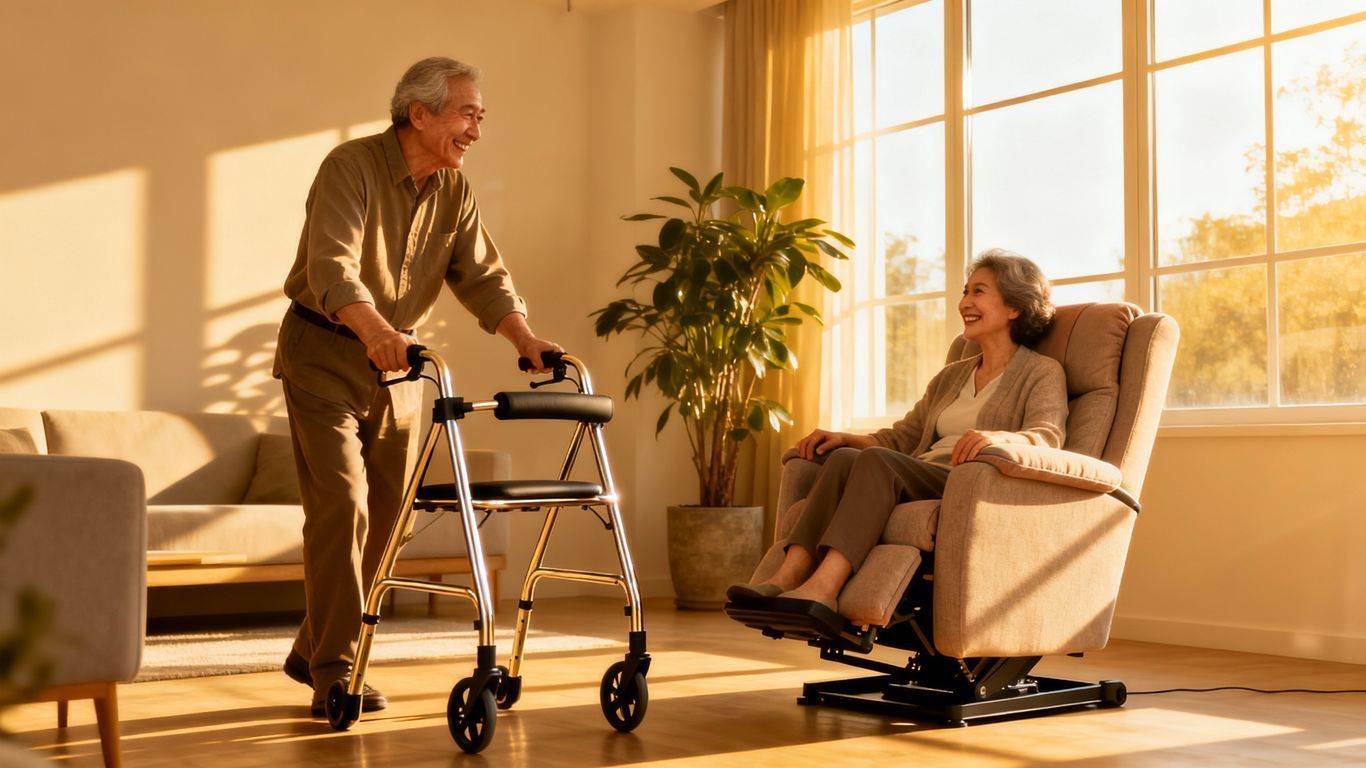Best Wheelchair Ramps & Lifts for Cold Weather in Dalton, Ringgold & Nearby Areas
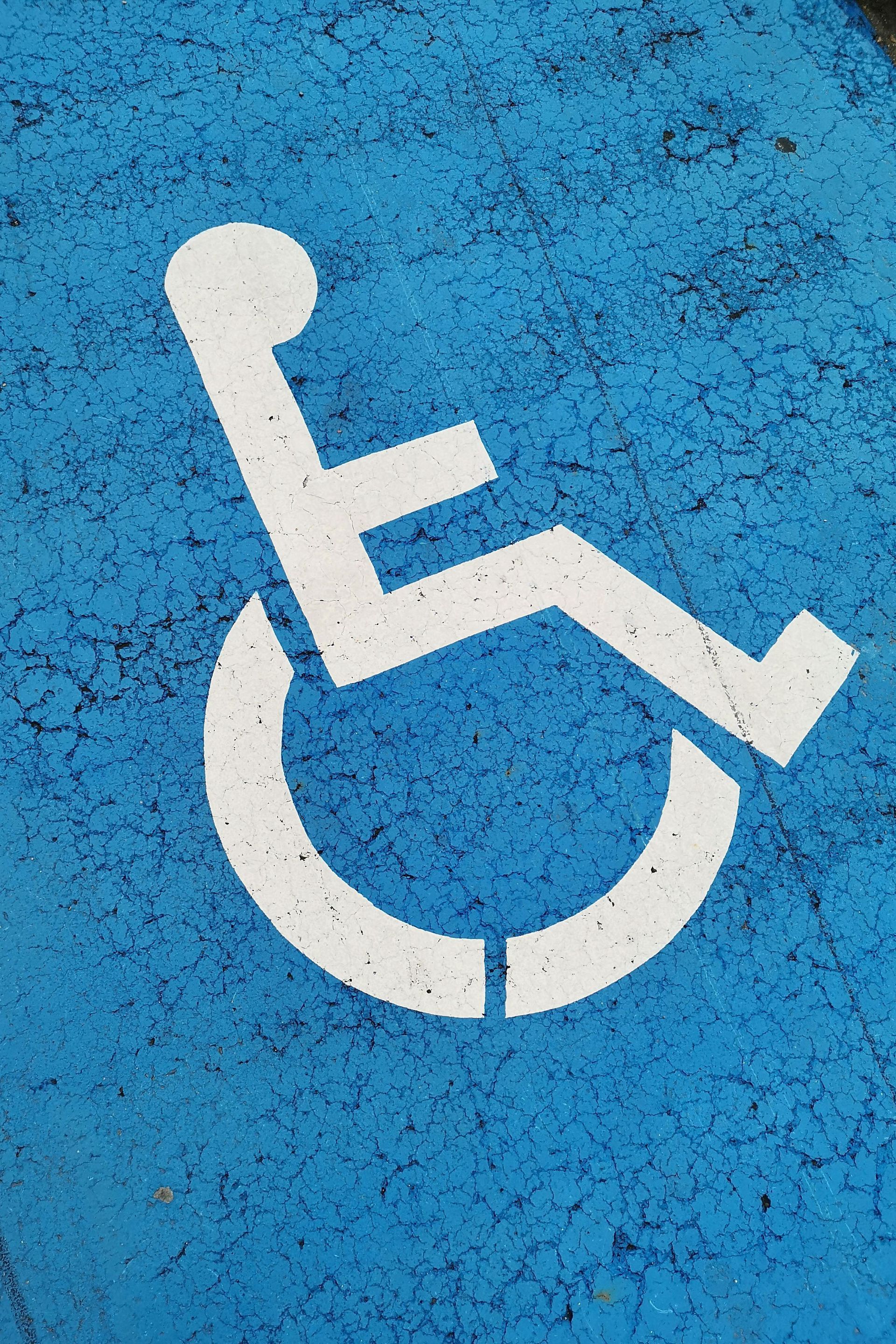
Winter weather in places like Dalton, Ringgold, and nearby areas can be pretty tough, especially when you need to get around in a wheelchair. Snow, ice, and just plain cold can make things tricky. But don't worry, there are lots of good options out there for wheelchair ramps and lifts that can handle the cold and make sure everyone stays mobile and safe. We're going to look at different types, from simple ramps to more complex lifts, so you can figure out what works best for your situation, maybe even for a Ringgold ramp installation.
Key Takeaways
- Portable ramps are good for quick, temporary access, but they might not be the best for really bad winter weather.
- Modular ramps are a solid choice for a permanent setup, especially since they're built to last and can handle different weather conditions.
- Vertical platform lifts are a great way to get up and down without needing a long ramp, which is super helpful when space is tight.
- When picking a ramp or lift, always think about how much use it'll get, the weather it'll face, and if it needs professional Ringgold ramp installation.
- No matter what you pick, safety is the most important thing, so make sure the ramp or lift is stable and has good grip, especially when it's icy.
1. Portable Ramps
Portable ramps are super handy, especially when you need a temporary solution for getting over a step or into a vehicle. They're designed to be lightweight and easy to move around, which makes them great for travel or situations where you don't want a permanent ramp installed. I've used them at friend's houses that aren't wheelchair accessible, and they've been a lifesaver.
The main advantage is their flexibility; you can take them anywhere. Aluminum is a common material because it's strong but doesn't weigh a ton. You can find them in various lengths and widths, so it's important to measure the height of the obstacle you need to overcome to choose the right size.
Here are some things to keep in mind when picking out a portable ramp:
- Weight capacity: Make sure it can handle the weight of the wheelchair and the user.
- Surface texture: You want something that provides good traction, especially in wet or icy conditions.
- Ease of setup: Look for ramps that are easy to unfold and position.
One thing I learned the hard way is to always check the weight rating. I once tried to use a ramp that was clearly not designed for my power wheelchair, and it started to buckle. Luckily, no one was hurt, but it was a close call. Now I always double-check the specs before using any ramp.
2. Threshold Ramps
Threshold ramps are super useful for those small but annoying bumps that can make getting around in a wheelchair a real pain. I'm talking about doorways, raised landings, or even just that little lip between your garage and the driveway. These ramps are designed to provide a smooth transition over these obstacles, making life a whole lot easier.
Think about it: trying to navigate even a half-inch rise can be tough, especially if you're using a manual wheelchair. Threshold ramps eliminate that struggle. They're typically made from aluminum, rubber, or even sometimes a dense plastic, so they're durable enough to handle regular use, even in cold weather. Plus, they're often pretty lightweight, making them easy to move around if needed.
Here's why I think they're great:
- They're relatively inexpensive compared to other ramp options.
- Installation is usually a breeze – often just a matter of placing them where you need them.
- They come in various sizes and heights to fit different thresholds.
One thing to keep in mind is that you'll want to measure the height of your threshold carefully before buying a ramp. You want a smooth transition, not a steep climb. Also, consider the material – rubber ramps can be great for indoor use, while aluminum might be better for outdoor areas that get wet or icy.
3. Modular Ramps
Modular ramps are pretty cool because they're like building blocks for accessibility. Instead of getting a ramp that's one solid piece, you get sections that you can put together to make the ramp the exact length and shape you need. This is super handy if you have a weird setup or might need to move the ramp later on. They're also great for dealing with different heights and obstacles.
Here's why people like them:
- Customization: You can add or remove sections to change the ramp's length and configuration.
- Relocation: They're easier to move than one-piece ramps since you can disassemble them.
- Durability: Usually made from aluminum or steel, so they can handle the weather.
Modular ramps can be a bit more of an investment upfront, but the flexibility they offer often makes them worth it. Plus, if you move, you can take the ramp with you and reconfigure it for your new place. It's like having a ramp that grows with you.
When thinking about modular ramps, consider the following:
- The total rise you need to overcome.
- The available space for the ramp's footprint.
- The weight capacity required for the user and their mobility device.
And don't forget about the surface material. Some materials offer better traction for mobility scooters in wet or icy conditions, which is a big deal when winter rolls around in areas like Dalton and Ringgold.
4. Folding Ramps
Folding ramps are super convenient, especially if you need something you can move around easily. They're designed to be lightweight and compact, making them a great option for both home and travel. I've used them myself when visiting friends' houses that weren't wheelchair accessible, and they've been a lifesaver.
The main advantage is their portability; you can fold them up and store them in your car or closet when they're not needed.
Here's what makes them a solid choice:
- Easy to store: They don't take up much space.
- Simple to set up: Usually, it's just a matter of unfolding them.
- Good for temporary solutions: Perfect for short-term accessibility needs.
However, keep in mind that folding ramps might not be the best for every situation. They typically have weight limits, so you'll want to check that before purchasing. Also, the length might be a factor if you have a particularly high step or threshold. I remember one time I almost bought a ramp that was way too short – definitely measure twice, buy once!
Folding ramps are a practical solution for many accessibility challenges, but it's important to consider the specific requirements of your situation. Think about the weight capacity, the length needed, and how often you'll be using it. This will help you choose the right ramp for your needs. Don't forget to check out different vehicle wheelchair lifts to see if they are a better fit.
5. Telescoping Ramps
Telescoping ramps are pretty neat because they're all about adjustability. They slide in and out, kind of like an old-school telescope, which means you can make them longer or shorter depending on what you need. This is super handy if you've got different thresholds or vehicles to deal with.
The main advantage is their portability and adaptability. You can easily move them around and adjust the length to fit various situations. They're also usually lightweight, making them easier to carry and store when you're not using them.
Here's why people like them:
- They're easy to store because they collapse down.
- They're great for different heights and lengths.
- They're usually made of aluminum, so they're durable and won't rust easily.
One thing to keep in mind is that while they're adjustable, they might not be as sturdy as a fixed ramp. Always check the weight capacity and make sure it's properly secured before using it. It's better to be safe than sorry, especially in icy or snowy conditions.
If you're noticing signs of a failing wheelchair lift, a telescoping ramp might be a good temporary solution while you get it fixed.
6. Vehicle Ramps
Okay, so vehicle ramps are a whole different ballgame. We're not just talking about getting over a small step anymore; we're talking about getting a wheelchair or scooter into a car, van, or truck. This is where things can get a little more complicated, but also a lot more convenient if you choose the right ramp.
Vehicle ramps are designed to make transportation easier for wheelchair and scooter users. They come in various styles, each with its own set of pros and cons. Think about how often you'll be using it, how much space you have, and how much weight it needs to support. It's not a one-size-fits-all kind of thing, so doing a little research is key.
Here are some things to consider when looking at vehicle ramps:
- Ramp Length: Longer ramps are easier to climb but take up more space.
- Weight Capacity: Make sure the ramp can handle the combined weight of the wheelchair/scooter and the user.
- Portability: Some ramps are designed to be easily moved and stored, while others are more permanent fixtures.
Choosing the right vehicle ramp can significantly improve your independence and make traveling much less of a hassle. It's worth taking the time to find one that fits your specific needs and vehicle type.
There are a few main types to consider:
- Folding Ramps: These are great for portability and storage. They fold up into a compact size, making them easy to transport and store when not in use.
- Solid Ramps: These are more durable and can handle heavier loads. They're often used for permanent installations.
- Telescoping Ramps: Similar to the telescoping ramps for doorways, these can be adjusted to different lengths, making them versatile for various vehicles.
7. Vertical Platform Lifts
Vertical platform lifts, sometimes called porch lifts, are a great solution when a ramp just isn't practical. Maybe you have a really high porch, or not enough space for a long ramp run. These lifts raise a wheelchair and its occupant straight up and down, kind of like a mini-elevator. They're often used for access to porches, decks, or even different levels inside a building.
These lifts are designed to provide accessibility where stairs are a barrier.
Here are some things to consider about vertical platform lifts in cold weather:
- Weather Protection: Look for models with features like enclosed platforms or covers to protect the user from snow and ice. Some even have heating options for the platform itself.
- Non-Slip Surfaces: Make sure the platform has a non-slip surface to prevent accidents in wet or icy conditions. Regular cleaning to remove snow and ice is also important.
- Reliability: Cold weather can affect the mechanics of any lift. Choose a model known for its reliability and consider a maintenance plan to keep it running smoothly.
Vertical platform lifts can be a game-changer for accessibility, but it's important to do your research and choose a model that's suitable for your specific needs and the climate in Dalton, Ringgold, or surrounding areas. Don't forget to factor in installation costs and any necessary permits.
8. Inclined Platform Lifts
Inclined platform lifts are a pretty neat solution if you're dealing with stairs but don't want to completely renovate your place. They basically carry a wheelchair or scooter up and down the stairs along a rail system. Think of it like a mini-elevator that follows the slope of your staircase. They can be installed on straight or curved staircases, which is a big plus.
One thing to keep in mind is that inclined platform lifts can be a bit more involved to install than some other accessibility options. You'll need to make sure your staircase is structurally sound and that you have enough space for the platform to move freely. Also, they can sometimes obstruct the stairs for other users when they're not in use, so that's something to consider.
Here are a few things to think about when considering an inclined platform lift:
- Weight Capacity: Make sure the lift can handle the weight of the wheelchair or scooter plus the user.
- Staircase Configuration: Straight, curved, or multiple landings will affect the type of lift you need.
- Safety Features: Look for things like emergency stop buttons, safety sensors, and non-slip platforms.
Living in Dalton or Ringgold, you know how unpredictable the weather can be. Inclined platform lifts designed for outdoor use need to be able to withstand the elements, including snow, ice, and temperature fluctuations. Look for models with weather-resistant coatings and components.
Also, maintenance is key. Regular inspections and servicing will help keep your lift running smoothly and safely, especially during the colder months when things can get a bit dicey.
9. Stair Lifts
Stair lifts are a solid option if the main challenge is navigating stairs inside your home. They're basically chairs that move up and down a rail installed along your staircase. It's a pretty straightforward solution, but there are a few things to consider, especially when it gets cold around Dalton and Ringgold.
Stair lifts can be a game-changer for maintaining independence at home. They eliminate the risk of falls on stairs, which is especially important during icy winter months. Regular maintenance is key to ensuring they operate smoothly and safely in colder temperatures.
Here's a quick rundown:
- Consider the power source: Make sure it has a battery backup in case of power outages, which can happen more often in winter.
- Check the weight capacity: Ensure it can handle the user's weight, especially with extra winter clothing.
- Look for weather-resistant models: Some are designed to withstand colder temperatures better than others.
Stair lifts aren't a one-size-fits-all deal. You'll need to think about the type of staircase you have. Is it straight, curved, or does it have any landings? This will affect the type of lift you need and the installation process. Also, think about who will be using the lift. Are they able to transfer themselves easily, or will they need assistance? This might influence the type of seat and safety features you choose. If you need assistance with daily living activities, consider looking into agency respite care provider options to help with transfers and other needs.
10. Porch Lifts
Porch lifts, also known as vertical platform lifts (VPLs), are a great option for getting up and down short distances, like onto a porch. They're basically like mini-elevators designed for home use. If you're dealing with stairs leading to your front door, a porch lift can make a huge difference, especially during the colder months when ice and snow make things even more treacherous. They offer a safe and reliable way to access your home without struggling with steps.
Here's what you should consider when thinking about a porch lift:
- Weight capacity: Make sure the lift can handle the weight of the user and any mobility device they might be using.
- Weather resistance: Look for models designed to withstand the elements, especially if you live in an area with harsh winters. Consider a model with a cover or enclosure.
- Safety features: Emergency stop buttons, safety sensors, and non-slip platforms are essential.
Porch lifts are a significant investment, but they can dramatically improve accessibility and quality of life. Think about the long-term benefits and how it can help you or a loved one stay safe and independent at home, especially when dealing with the challenges of winter weather in places like Dalton and Ringgold.
Before you buy, it's a good idea to check out storm data to see how severe the weather typically gets in your area. This can help you choose a lift that's built to last.
Need a boost to get onto your porch? Porch lifts are a great way to make your home more accessible. They're simple to use and can make a big difference for anyone who finds stairs tricky. Find out more about how a porch lift can help you by visiting our website today!
Conclusion
So, there you have it. Picking the right ramp or lift for those chilly Dalton and Ringgold winters doesn't have to be a headache. It's really about thinking through what you need, what the weather's going to throw at it, and making sure it's safe for everyone. Don't just grab the first thing you see; take a little time to look at your options. A good choice here means a lot more freedom and peace of mind when the temperatures drop. Stay warm and stay moving!
Frequently Asked Questions
What kinds of materials are best for ramps and lifts in very cold weather?
When the weather gets really cold, you'll want ramps and lifts that are made from strong materials like aluminum or special plastics. These materials handle freezing temperatures and snow much better than others. Also, look for surfaces that don't get slippery when wet or icy. Good grip is super important for safety.
Do I need to do special upkeep on my ramp or lift during winter?
Yes, it's a really good idea to check your ramp or lift often, especially when it's cold. Look for any ice buildup, cracks, or loose parts. Clear away snow and ice right away. A little bit of care can prevent big problems and keep everyone safe.
How can I make sure my ramp or lift doesn't get slippery when it's icy?
For ramps, you can use non-slip mats or special tapes that stick to the surface. Some ramps even come with built-in textures for better grip. For lifts, make sure moving parts are greased properly so they don't freeze up. Keeping them clean and dry helps a lot.
Can I get help preparing my ramp or lift for winter?
Yes, many companies that sell and install these products in places like Dalton and Ringgold offer winterization services. They can come out and make sure your equipment is ready for the cold, checking everything and adding protective coatings if needed. It’s worth asking about.
How do I pick the right ramp or lift for my home in a cold climate?
The best type depends on what you need it for. Portable ramps are great if you move around a lot. Modular ramps are good for more permanent solutions. Lifts are best when ramps would be too long or steep. Think about how much space you have, how often you'll use it, and what kind of weather you expect.
Are all wheelchair ramps and lifts made to withstand cold weather?
Most modern ramps and lifts are built to handle different kinds of weather, including cold. Manufacturers usually test their products in tough conditions. However, it's always smart to pick models specifically designed for outdoor use and to follow the care instructions to make them last longer.
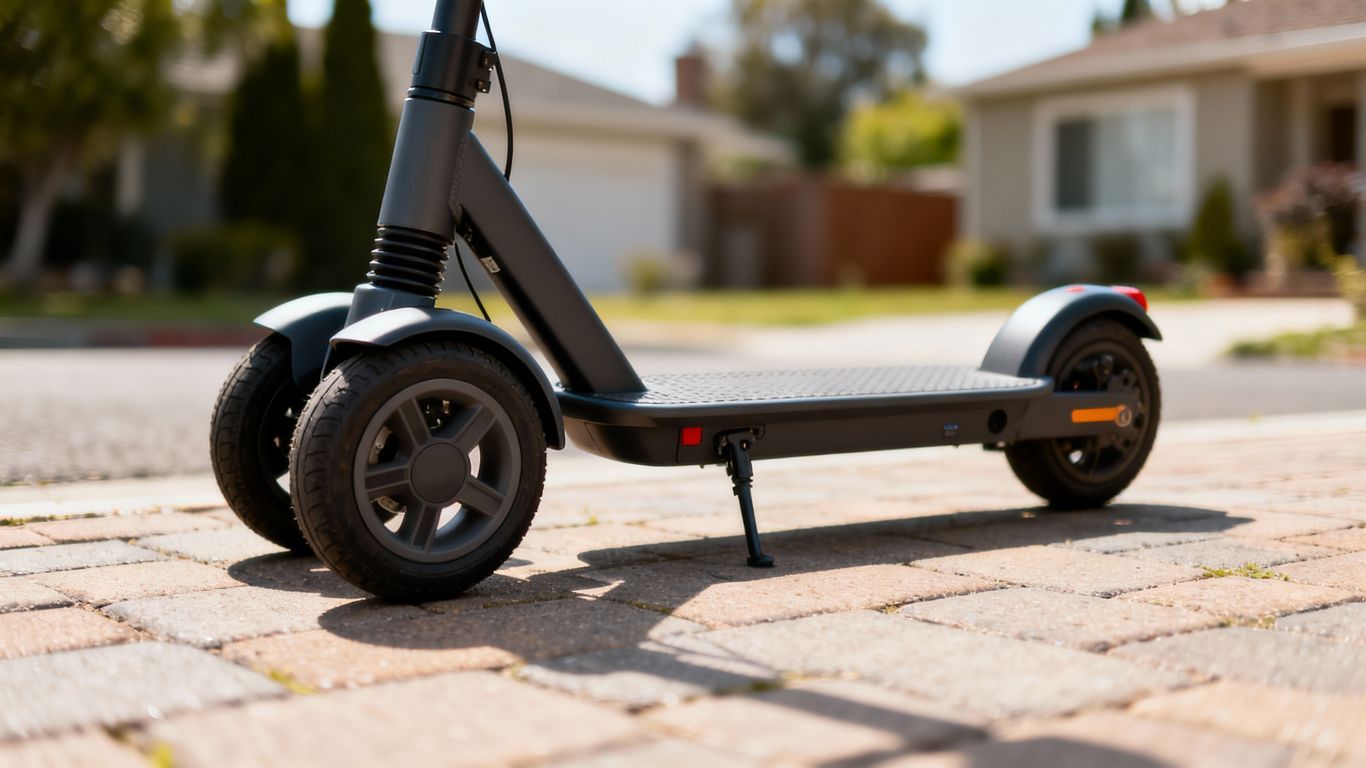
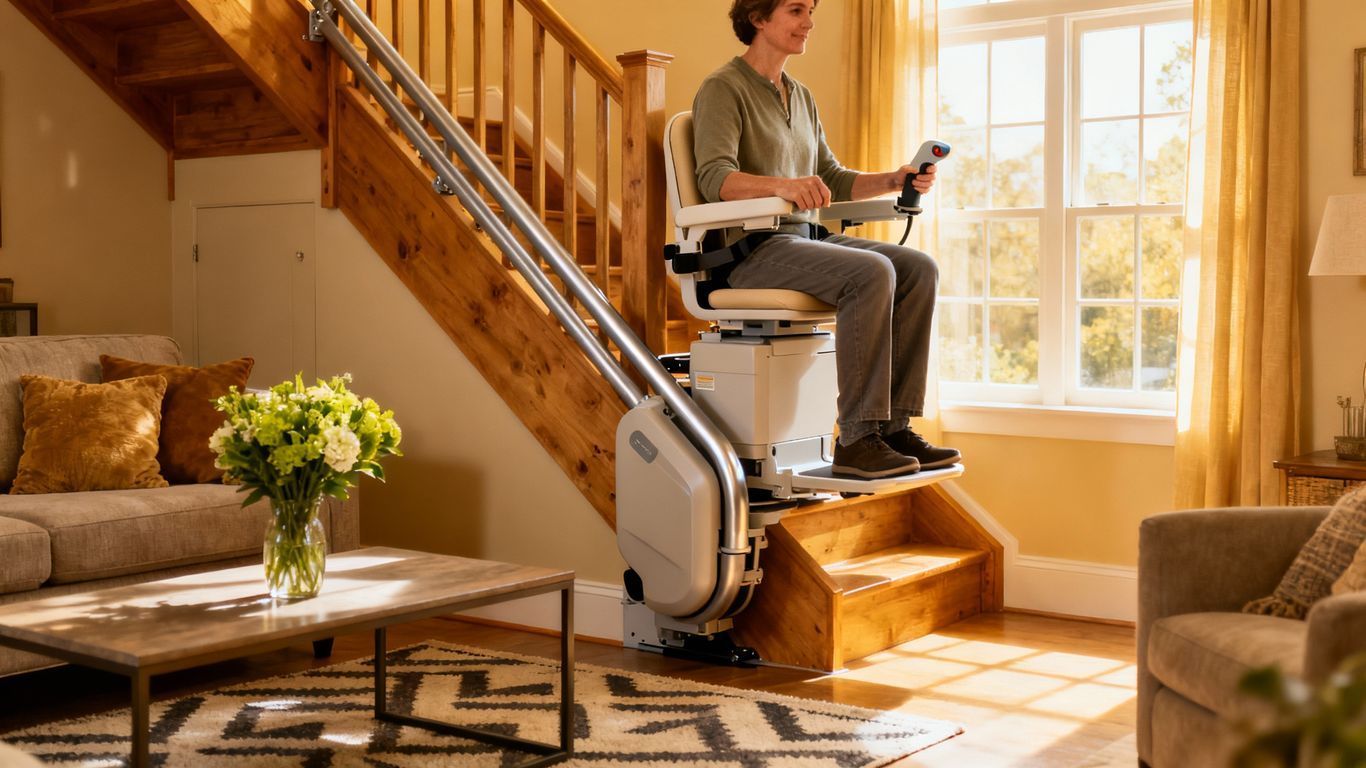
Why February Is the Perfect Time for Stair Lift & Home Accessibility Upgrades in Calhoun & LaFayette
